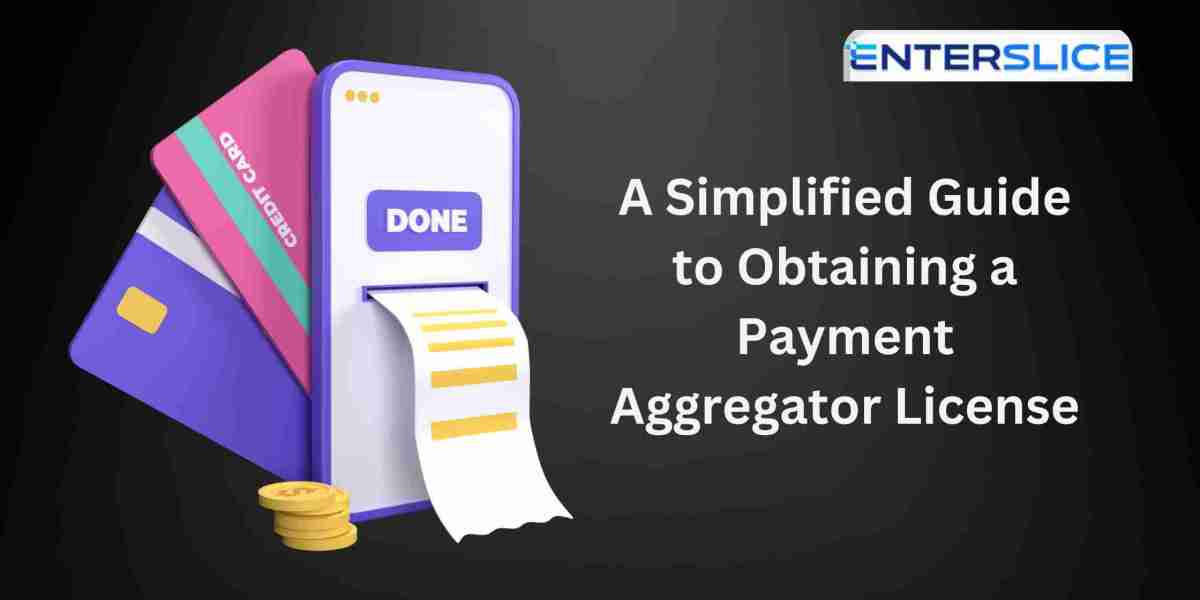Introduction:
Imagine running an online store, and you’ve made the decision to accept payments from your customers via credit cards, debit cards, or other online modes. But there’s one thing you can’t skip: a Payment Aggregator License from the Reserve Bank of India (RBI). This license allows you to process payments on behalf of customers, ensuring that everything is legally compliant.
Without this license, you may find your business exposed to penalties or potential shutdown. It’s not just about being legally compliant; it also builds trust with your customers, making them more confident in the security and reliability of your platform.
Breaking Down What You Need to Get Started
Before diving into the application process, let’s take a moment to review the basic requirements needed for applying for a Payment Aggregator License.
Basic Eligibility Requirements
You might already have your business setup, but it’s important to check the eligibility criteria before applying. Here’s what you need to consider:
- Company Structure: The company applying must be an LLP or registered under the Companies Act, 2013. The license cannot be granted to sole proprietors or other business structures.
- Paid-Up Capital: A minimum capital requirement of Rs. 15 lakh is mandatory for payment aggregators. This is non-negotiable and needs to be maintained at all times.
- Key Personnel: A principal officer (someone with financial acumen and experience) is required to run the operations.
- Background Check: The company should have a clean financial history and should not have been involved in any violations of RBI rules in the past.
Financial Stability
It's not just about having the right structure but also ensuring your finances are in good shape. Payment aggregators need to prove that they can handle the financial transactions they’ll be processing.
Getting the License: A Step-by-Step Walkthrough
So, you meet the eligibility criteria. Now, what are the steps involved in getting the Payment Aggregator License? Here’s a simplified breakdown of the process.
Step 1: Gather Your Documents
This is the first crucial step. To apply for the Payment Aggregator License, you’ll need to collect several documents. Here’s a list of the most important ones:
- Business Plan: A well-detailed business plan outlining your payment platform’s growth and operational strategies.
- Company Registration: Proof that your company is registered under the Companies Act, 2013 or as an LLP.
- Capital Proof: Demonstrate that you meet the minimum capital requirement of Rs. 15 lakh.
- Details of Key Personnel: Submit qualifications and experience of the principal officer and other key management team members.
Step 2: Fill Out the Application Form
The application form is available on the RBI website. Make sure you fill out every section carefully. Also, ensure that the application is accompanied by the necessary processing fee (typically Rs. 25,000), either through a demand draft or electronic transfer.
Step 3: Wait for RBI’s Review and Approval
Once you’ve submitted your application, it’s time to wait. The RBI will take a few months to review your application. They will assess your documents, financials, and the overall compliance with RBI’s guidelines.
Step 4: Receiving the Payment Aggregator License
Once you get the nod from the RBI, you will officially receive the Payment Aggregator License. With this, you can legally begin processing payments for your customers.
Compliance: What You Need to Keep Doing Post-License
Obtaining the license is just the beginning. To maintain the license and operate legally, there are ongoing compliance requirements you must meet.
Adhering to RBI’s Rules
- You must comply with RBI’s guidelines on financial transactions and data protection. These include ensuring that customer data is secure, transactions are legitimate, and no fraudulent activities take place.
- Regular audits will be required to ensure you’re operating according to these guidelines.
Ongoing Financial Monitoring
You need to maintain a minimum net-worth as specified by the RBI and ensure your capital structure is in place. If at any point your financial standing dips below the required threshold, your license could be revoked.
Regular Reporting
You will also be required to submit regular reports to the RBI regarding your financial status, transaction volumes, and customer complaints. These reports ensure that the RBI is continuously aware of your operations and that you’re in compliance with all the rules.
Common Mistakes to Avoid When Applying for a Payment Aggregator License
While applying for a Payment Aggregator License, many businesses make mistakes that can delay the process or lead to rejection. Here are a few common errors you should avoid:
- Missing Documentation: Make sure you submit all the required documents, including proof of capital, business plan, and details of key personnel.
- Underestimating Capital Requirements: The capital requirement is a hard-and-fast rule. Make sure you meet this before applying.
- Neglecting the Background Check: Ensure your company has no violations or previous penalties under RBI guidelines.
Real-World Benefits of Having a Payment Aggregator License
Obtaining a Payment Aggregator License is more than just meeting regulatory requirements; it offers several business advantages:
- Increased Trust with Customers: Customers are more likely to trust your platform if they know you’re compliant with RBI regulations.
- Legal Protection: With the license, you’re legally protected, avoiding any potential fines or penalties for non-compliance.
- Market Growth: Having the ability to accept online payments legally opens doors for more business partnerships, making it easier to scale your operations.
Wrapping It Up:
To sum up, the process of obtaining a Payment Aggregator License in India is quite structured but straightforward. By ensuring you meet eligibility criteria, submitting the correct documents, and adhering to RBI’s guidelines, you can successfully navigate the process and set up a legally compliant payment processing system.
The key is to focus on compliance and financial stability, which not only helps you get the license but also ensures smooth, long-term operations.
FAQs
1. What is a Payment Aggregator License?
A Payment Aggregator License allows businesses to collect and process payments from customers on behalf of merchants. It ensures that payment systems comply with RBI regulations.
2. How long does it take to get a Payment Aggregator License?
The process can take anywhere between 2 to 3 months, depending on the completeness of your application and the review process by the RBI.
3. What happens if I don’t get the Payment Aggregator License?
Without the Payment Aggregator License, you won’t be able to process online payments legally, which could result in penalties or shutdown of your payment processing operations.
Also, read other topics:
What are the advantages of Peer to Peer Lending Platforms in India?







